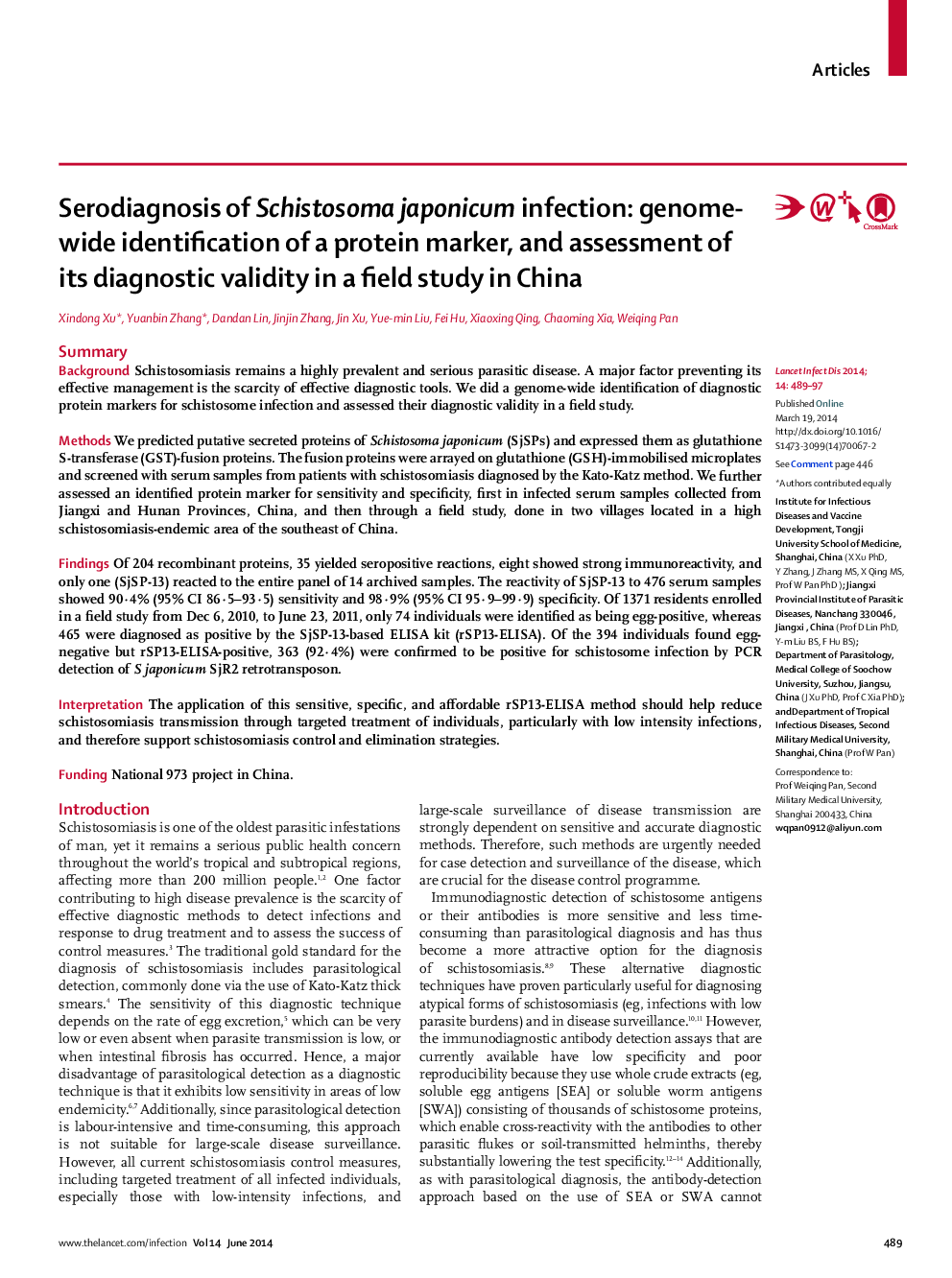| کد مقاله | کد نشریه | سال انتشار | مقاله انگلیسی | نسخه تمام متن |
|---|---|---|---|---|
| 3410239 | 1224062 | 2014 | 9 صفحه PDF | دانلود رایگان |
SummaryBackgroundSchistosomiasis remains a highly prevalent and serious parasitic disease. A major factor preventing its effective management is the scarcity of effective diagnostic tools. We did a genome-wide identification of diagnostic protein markers for schistosome infection and assessed their diagnostic validity in a field study.MethodsWe predicted putative secreted proteins of Schistosoma japonicum (SjSPs) and expressed them as glutathione S-transferase (GST)-fusion proteins. The fusion proteins were arrayed on glutathione (GSH)-immobilised microplates and screened with serum samples from patients with schistosomiasis diagnosed by the Kato-Katz method. We further assessed an identified protein marker for sensitivity and specificity, first in infected serum samples collected from Jiangxi and Hunan Provinces, China, and then through a field study, done in two villages located in a high schistosomiasis-endemic area of the southeast of China.FindingsOf 204 recombinant proteins, 35 yielded seropositive reactions, eight showed strong immunoreactivity, and only one (SjSP-13) reacted to the entire panel of 14 archived samples. The reactivity of SjSP-13 to 476 serum samples showed 90·4% (95% CI 86·5–93·5) sensitivity and 98·9% (95% CI 95·9–99·9) specificity. Of 1371 residents enrolled in a field study from Dec 6, 2010, to June 23, 2011, only 74 individuals were identified as being egg-positive, whereas 465 were diagnosed as positive by the SjSP-13-based ELISA kit (rSP13-ELISA). Of the 394 individuals found egg-negative but rSP13-ELISA-positive, 363 (92·4%) were confirmed to be positive for schistosome infection by PCR detection of S japonicum SjR2 retrotransposon.InterpretationThe application of this sensitive, specific, and affordable rSP13-ELISA method should help reduce schistosomiasis transmission through targeted treatment of individuals, particularly with low intensity infections, and therefore support schistosomiasis control and elimination strategies.FundingNational 973 project in China.
Journal: - Volume 14, Issue 6, June 2014, Pages 489–497
